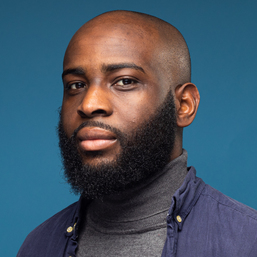
European Studies staff argue department should be more critical
Twenty employees of the European Studies department came together to craft a statement that reflects their values in education.
In the statement, which can be read below (in English), the signatories argue for more diversity in the workforce, the decolonisation of the curriculum and for the department to take a critical look at how the programme presents itself. Folia spoke with three employees of the department, Hanna Muehlenhoff, Chiara de Cesari and Sudha Rajagopalan to hear what they have to say.
Have you already achieved changes within your department?
‘Change has been underway for a while, and colleagues (signatories or not) are firmly of the opinion that the process of ensuring diversity is a crucial one. As a first concrete step, European Studies will set up a working group on diversity to come up with concrete measures to tackle these issues. The statement is of course just the beginning. What is much more important is to reflect broadly on diversity across all the work we do in European Studies, from designing our BA and MA programmes to hiring staff.’
‘We began the journey of rethinking European Studies some time ago’, you wrote. How should we imagine the beginning of this journey?
‘Many colleagues have adapted their course content to foreground Europe’s contested nature and to accommodate multiple voices, so that students become familiar with more than just the classic western (read: ‘white’) canon. But we have to do more to decolonise our curriculum by systematically foregrounding Europe’s postcoloniality and key issues of structural racism. We’d like to ensure that such changes are more visible so that we can reach out to a more diverse body of students and staff, and become more relevant in light of current societal challenges. Engaging with content that recognises plural histories and lived experiences will help us reach out to a more diverse student body.’
Would you consider, for example, giving up your position to allow people from 'minority' backgrounds to take up your space?
‘Our initiative starts from the recognition that institutional racism, multiple forms of discrimination, and lack of diversity are structural issues that deeply shape our work and lives. White privilege (and a national understanding of diversity that at times conceals it) is part of that, affecting, among others, hiring practices and procedures that have also led to our appointments. This means that individual choices are not the solution: structural issues require structural solutions, and us giving up our positions will not trigger per se a change in hiring practices, which is the goal. This is why we decided to go for setting up a commission/working group to start making concrete recommendations for change and to ensure that a more diverse staff gets hired. We think there is space and more awareness now that the recent events have made structural exclusion for all to see. We should work to push the university to invest way more resources into diversifying profiles, content, students and staff bodies.’
How do you attract more students from non-European backgrounds for European Studies?
‘First of all, we have to be circumspect when using the term ‘non-European’: making our university a more diverse place in line with the reality of our cities and societies is not only a matter of bringing in students from outside Europe, but crucially of attracting a more diverse body of European students of plural backgrounds, minorities, ethnic or otherwise, and students of colour. One concrete measure could be to visit high schools in the Netherlands to promote our study programmes to more diverse groups of students. Yet, this is not only about advertising our programme but about what we offer to prospective students. Decolonising our curriculum implies that we emphasise Europe as a highly contested project and position Europe’s postcoloniality as central to our programme. This can only be done if our courses substantively engage with the work of Black and ethnic minority scholars.’


